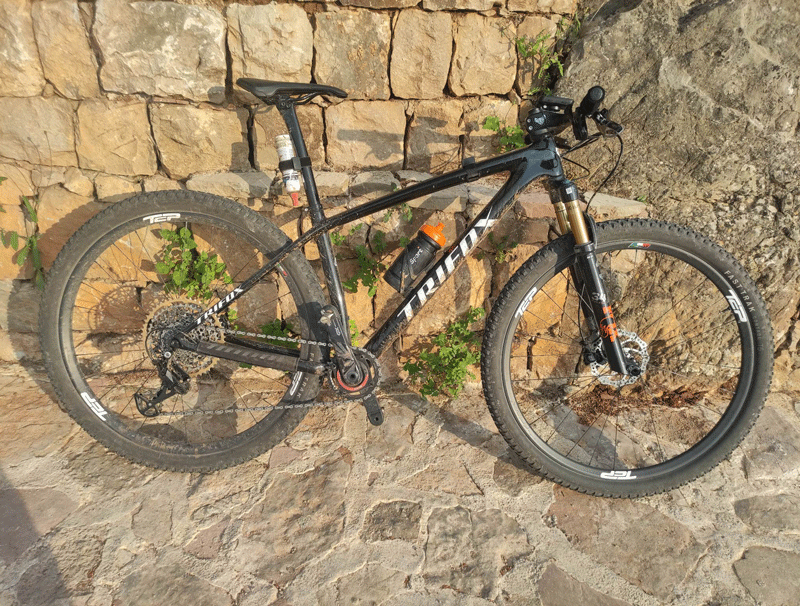
Mountain biking has taken the world by storm, and it’s not hard to see why. The thrill of conquering trails and feeling like you’re at one with nature is a rush like no other. However, not all bike frames are created equal. You may be wondering if a small frame mountain bike is right for you. In this post, we’ll talk about the benefits of a small frame mountain bike and how it may be the perfect fit for you. 1. More maneuverable: A small frame mountain bike has a shorter wheelbase, making it much easier to navigate tight turns and twisty single-track trails. This can be especially useful if you’re riding in areas with a lot of switchbacks or technical terrain. 2. Better control: Because of their smaller size, small frame mountain bikes tend to be more agile and responsive. This means that you’ll be able to make quick adjustments on the fly and maintain better control over your bike. This is a crucial skill to have when you’re negotiating rough terrain at high speeds. 3. More comfortable: If you’re short in stature, a small frame mountain bike can be a godsend. Traditional mountain bikes can be challenging to ride for smaller riders, and a small frame can provide a much more comfortable fit. The smaller frame size means that the bike will have a lower standover height, making it easier to get on and off. 4. Lighter weight: One of the significant benefits of a small frame mountain bike is that it tends to be much lighter than its larger counterparts. This can make a big difference when you’re climbing hills or carrying your bike over obstacles on the trail. The lighter weight can also contribute to a much more responsive and agile ride. 5. Better fit: Finally, a small frame mountain bike may simply be a better fit for you. Different riders have different preferences, and a smaller frame size might just be more comfortable for your body type. A better fit can lead to a more enjoyable ride and better overall performance. Conclusion: In conclusion, a small frame mountain bike may be the perfect choice for riders who value maneuverability, control, comfort, and fit. With their shorter wheelbase and lighter weight, these bikes can be a great choice for shorter riders or those who want a more agile and responsive ride. Of course, it’s essential to test ride a few different bikes and find the one that works best for you. But if you’re on the hunt for a new mountain bike, a small frame might be just what you’re looking for. Happy riding!
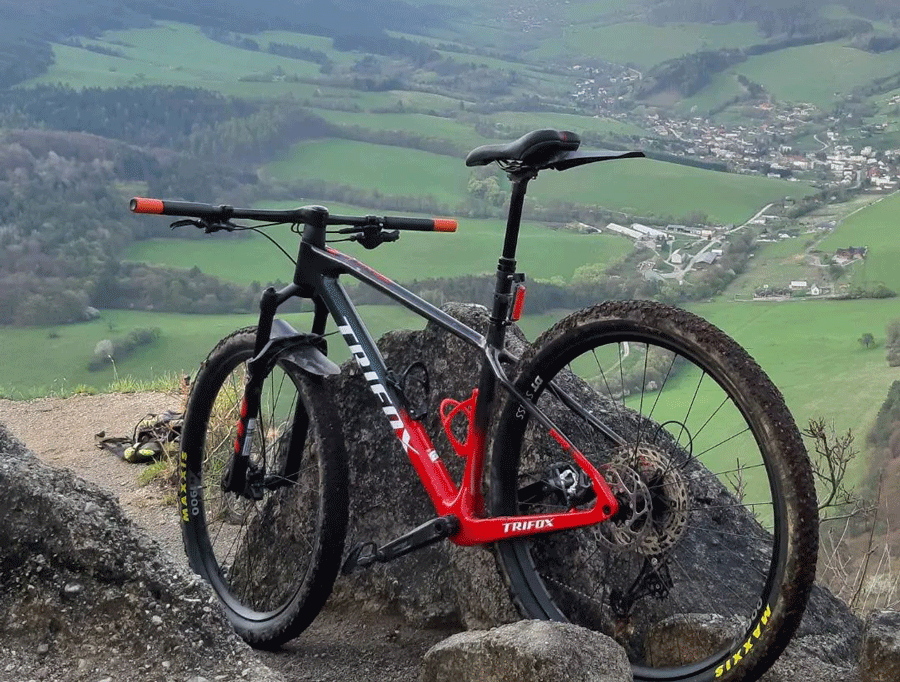
One of the most important factors in choosing a mountain bike is getting the right frame size. A properly fitted frame will ensure comfortable riding, better handling, and increased performance. With so many different frame sizes available, it may seem overwhelming to make the right choice. In this blog post, we'll explore the things you need to consider when selecting a frame size for your mountain bike. 1. Measure Your Height The first step in choosing the right frame size is to measure your height accurately. This will give you a starting point to determine which frame size will work for you. Typically, manufacturers have a size chart which indicates the size of frame that is right for you based on your height. Remember, different manufacturers may have slightly different ranges, so be sure to consult the specific size chart for the bike you are interested in purchasing. 2. Consider Your Riding Style Your riding style is another important factor to consider when selecting your mountain bike frame size. If you are interested in cross-country riding, you may prefer a larger frame size to give you more stability and power. A smaller frame size may be better if you prefer more technical trails and jumps, as it will give you more agility and maneuverability. 3. Check Your Inseam Your inseam length is another important measurement to consider when choosing your frame size. This measurement helps determine the standover height, which is the distance between the top tube of the bike and your inseam. You want to select a frame size where the standover height is approximately an inch or two below your inseam measurement. 4. Test Ride Different Frame Sizes Even after measuring yourself and considering your riding style, it's essential to test ride different frame sizes to find what feels right for you. This allows you to get a better idea of the bike's handling and how comfortable it is. When you test ride, pay attention to how the bike feels when you pedal, climb, descend, and make turns. 5. Seek Professional Help If you're still unsure which frame size is right for you, it's always a good idea to seek professional help. Many bike shops offer professional fitting services to ensure that the bike is perfectly fit for your body. They can take precise measurements and get you on the perfect frame size to achieve your goals. Conclusion: Choosing the right frame size for your mountain bike is critical in ensuring an enjoyable and safe riding experience. Taking accurate measurements, considering your riding style, testing different frame sizes, and seeking professional fitting services are all essential steps to take. Invest some time in choosing the right frame size, and you can enjoy many years of safe and comfortable riding.
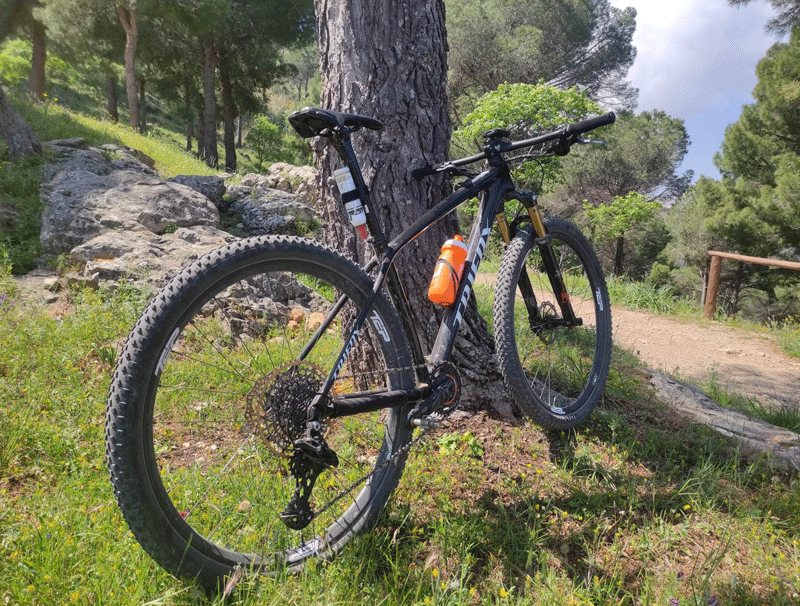
Mountain biking is one of the most thrilling outdoor activities that one can experience. Apart from the adrenaline rush it gives, it provides an excellent workout that keeps you fit and healthy. Nevertheless, not all bikes are made equal. They come in different sizes, styles, colors, and price ranges. Choosing the right size frame is crucial for your overall biking experience and safety, especially if you’re a tall rider. In this article, we will dive into the benefits and features of large mountain bike frames, and why choosing the correct one for you will make all the difference. 1. What is a large mountain bike frame? A large mountain bike frame is characterized by its larger size, longer wheelbase, and more upright riding position compared to small or medium frames. Large mountain bike frames are recommended for taller riders, as it provides them with enough space for their legs and arms to reach the pedals and handlebars comfortably. 2. Benefits of a large mountain bike frame One of the significant benefits of large mountain bike frames is their improved stability as they come with longer wheelbases. This is beneficial when riding on technical terrains as it provides better balance and traction, improving your overall riding experience. Additionally, large mountain bike frames offer more comfort as they provide more space for a larger saddle, wider handlebars, and longer reach. This means you can ride for a longer period without experiencing fatigue or discomfort. 3. Features to look for in a large mountain bike frame When choosing a large mountain bike frame, there are various factors to consider to fit your preferences. These factors include frame material, tire size, suspension type, and braking system. Frame material - Large mountain bike frames are made of different materials such as aluminum, carbon fiber, steel, or titanium. Each material has its pros and cons and has different weight restrictions. Steel frames are reliable and durable but are heavier than carbon fiber frames. Carbon fiber frames are lighter and more durable but can be expensive. Conclusion: Choosing the right mountain bike frame size is crucial for your safety, comfort, and overall biking experience. A large mountain bike frame gives you the advantage of more space, stability, and comfort. When choosing a large mountain bike frame, it's essential to consider the frame material, tire size, suspension type, and braking system, to fit your preferences. Investing in a quality large mountain bike frame will pay off in the long run, giving you a memorable and enjoyable biking experience.
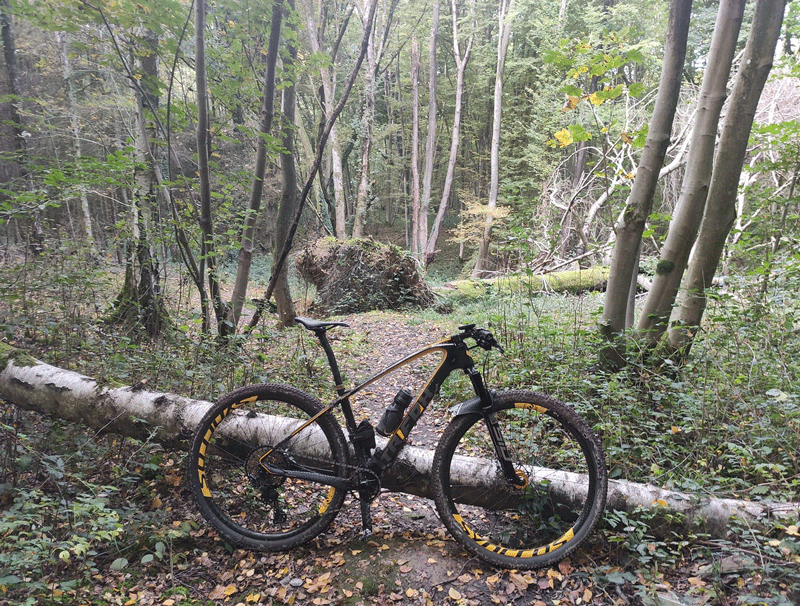
If you are looking to enhance your mountain biking experience, investing in a 27.5 MTB frameset could be a gamechanger. With their unique design and features, these framesets offer a range of benefits for riders of all levels. From stability and faster speeds to superior handling and durability, here's why you should consider upgrading to a 27.5 MTB frameset. 1. Improved Speed and Acceleration: One of the primary advantages of a 27.5 MTB frameset is its improved speed and acceleration. Due to its smaller size, this frameset can easily roll over obstacles and maintain speed by keeping the momentum up. This means you can hit the trails with a more aggressive stance, take tighter corners, and enjoy an overall faster ride. 2. Enhanced Handling: The 27.5 MTB frameset also offers superior handling, making it easier for riders to maneuver tight turns and navigate more technical trails. Thanks to its lower center of gravity, this frameset promotes better balance while also ensuring that the rider retains control even in the most challenging conditions. 3. Increased Durability: Another benefit of this frameset is its increased durability. Built with sturdier materials and designed for rugged terrain, the 27.5 MTB frameset can withstand harsh conditions, including rock gardens and intense jumps, without compromising on quality or performance. This means riders can have peace of mind while tackling challenging trails. 4. Perfect for All Body Types: The 27.5 MTB frameset also caters well to all body types, from short to tall riders, as it is designed to strike a balance between speed, comfort, and agility. So whether you're a beginner or an experienced rider, you'll appreciate the fit of a 27.5 MTB frameset, which can help mitigate the risk of injuries and fatigue. 5. Affordable: Lastly, investing in a 27.5 MTB frameset is an affordable way to upgrade your mountain bike without breaking the bank. As one of the most popular sizes in the MTB world, this frameset is readily available, even in budget-friendly options. And since the frameset itself is compatible with a wide range of components, you can easily tailor it to your own specific preferences and riding style. Conclusion: In conclusion, a 27.5 MTB frameset is a worthy investment for any mountain biker looking to upgrade their ride. From improved speed and acceleration to superior handling and durability, this frameset offers a range of advantages that cater well to riders of all levels and body types. Plus, it's an affordable way to take your riding experience to the next level. So if you're ready to enhance your mountain biking game, look no further than the 27.5 MTB frameset.
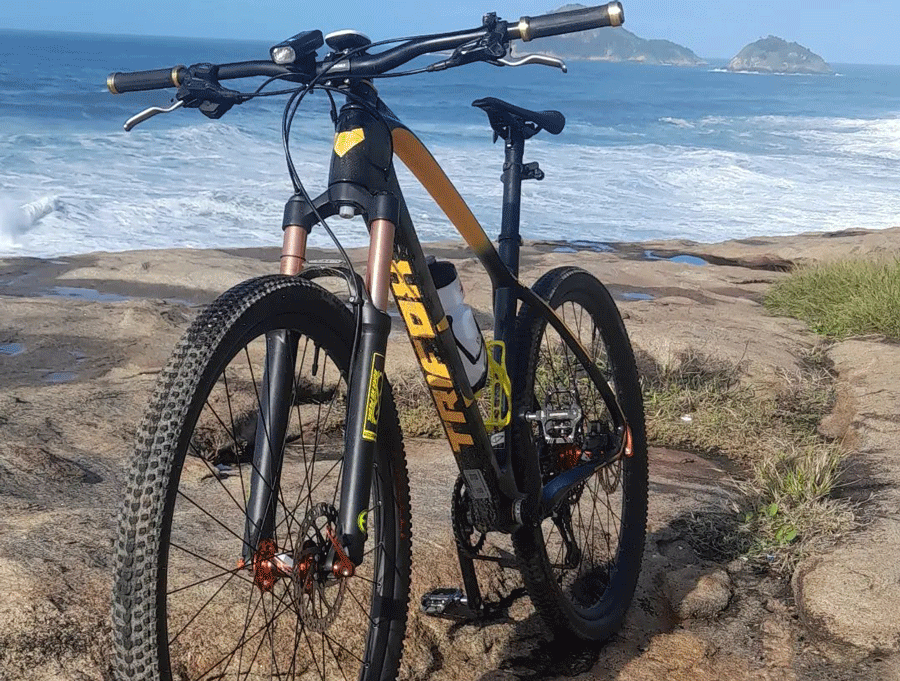
Mountain biking is a thrilling experience that requires durability and reliability. The performance of your mountain bike is directly proportional to the strength of its frame. Choosing the right mountain bike frame can be a daunting task, but you don’t have to worry about it. In this post, we'll guide you through everything you need to know about mountain bike frames to make the selection process much easier. Frame Material: Choosing the right material for your mountain bike frame is crucial. The most common materials for frames are aluminum, carbon fiber, steel, and titanium. Aluminum frames are lightweight yet sturdy making them suitable for all types of terrain. Carbon fiber frames offer maximum rigidity and are ideal for steep descents. Steel bikes, on the other hand, offer the most comfortable ride but are heavier compared to other materials. Lastly, titanium frames are light and durable but come with a hefty price tag. Suspension: Mountain bike frames come with either a hardtail or full suspension. Hardtail frames only have a suspension fork on the front while full suspension frames have a suspension fork on both the front and rear. Full suspension frames are ideal for rough terrains as they provide maximum shock absorption. Hardtail bikes are lighter and suitable for smoother terrains. Geometry: The geometry of a mountain bike frame is crucial to its overall performance. The geometry of a frame refers to the angles of the head, seat, and tubes. The head angle determines the steering precision, while the seat angle affects the comfort of the ride. For aggressive trails, a slacker head angle is suitable while for leisurely rides, a steeper head angle is better. Wheel Size: Mountain bike frames come in three wheel sizes; 26”, 27.5”, and 29”. The size you choose depends on the terrain you’ll be riding on. 26” wheels provide excellent handling and acceleration, making them ideal for short-travel bikes. 27.5” wheels are suitable for both short and long-travel bikes. For long-travel bikes, 29” wheels are the most suitable as they provide excellent traction and stability. Frame size: Lastly, the size of the frame is crucial to the overall comfort of your ride. The size of the frame depends on your height, inseam, and riding style. For aggressive trails, a smaller frame is suitable as it provides more maneuverability. Longer frames are more stable, making them suitable for leisurely rides. Conclusion: In conclusion, choosing the right mountain bike frame can be overwhelming, but with the right information, it can be a walk in the park. We’ve explained the different materials, suspension types, geometry, wheel sizes, and frame sizes that you can choose from to make the process easier. So whether you’re a beginner or a pro mountain biker, you now have all the information you need to choose the best frame for you. Happy mountain biking!
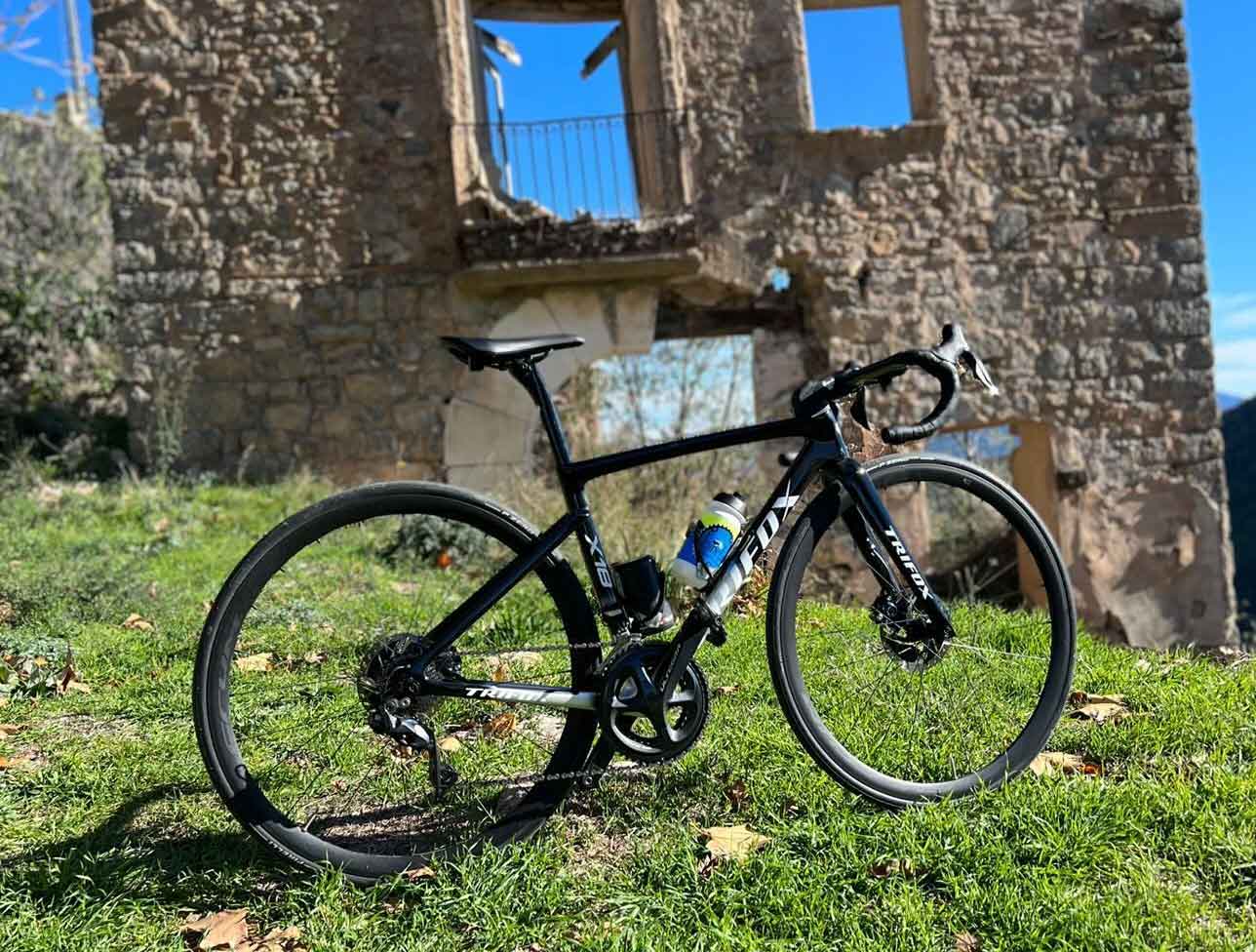
If you happen to be in the market for a new road bike, you may have come across two commonly used frame materials: steel and carbon fiber. While both materials are great options and have their own unique characteristics, there are certain pros and cons to consider before making your purchase decision. In this blog post, we'll discuss the differences between road bike steel frameset and carbon fiber frames, and what factors to keep in mind while choosing between them. 1. Weight: One of the biggest differences between steel and carbon fiber frames is their weight. Carbon fiber is known for being lightweight and stiff, which leads to better power transfer. On the other hand, steel frames are heavier and more flexible, which can dampen vibrations and provide a smoother ride. If you're looking to work on speed and are willing to invest a bit more money, you may prefer a carbon fiber frame. However, if comfort is a top priority, steel may be the way to go. 2. Durability: Steel frames have been used in road bikes for years, and for good reason. They’re extremely durable, and can hold up to rough terrain and heavy usage. Additionally, steel is a relatively inexpensive material to work with, so you can often find well-made steel framesets at an affordable price. Carbon fiber, while tough, is known to be a bit more fragile than steel. If you’re planning on putting a lot of miles on your bike, or are more prone to accidents, you may want to consider a steel frame. 3. Cost: Another key factor to keep in mind when choosing between a steel and carbon fiber frame is cost. Carbon fiber is generally more expensive than steel, due to its lightweight and stiffness properties. Steel frames, on the other hand, are more affordable and easily repairable. If you’re on a budget or looking to save money, steel may be a better option. However, keep in mind that you may be sacrificing some speed and performance compared to a carbon fiber frame. 4. Aesthetics: Lastly, we can’t ignore the importance of aesthetics. The overall look and style of your road bike can influence your decision on frame material. Carbon fiber frames are often associated with a sleek and modern look, while steel frames provide a more classic and traditional appearance. If you’re more concerned with looks than performance, take some time to consider which material is more appealing to you. Conclusion: Ultimately, the choice between a steel and carbon fiber road bike frame comes down to your individual preferences and priorities. If you're looking for speed and performance, carbon fiber may be the way to go. However, if you want a more comfortable and affordable ride, steel may be the better option. Both materials have their pros and cons, so take the time to research and test out different options before making your final decision. No matter which material you choose, remember that investing in a quality road bike frame is a worthwhile investment in your cycling journey.
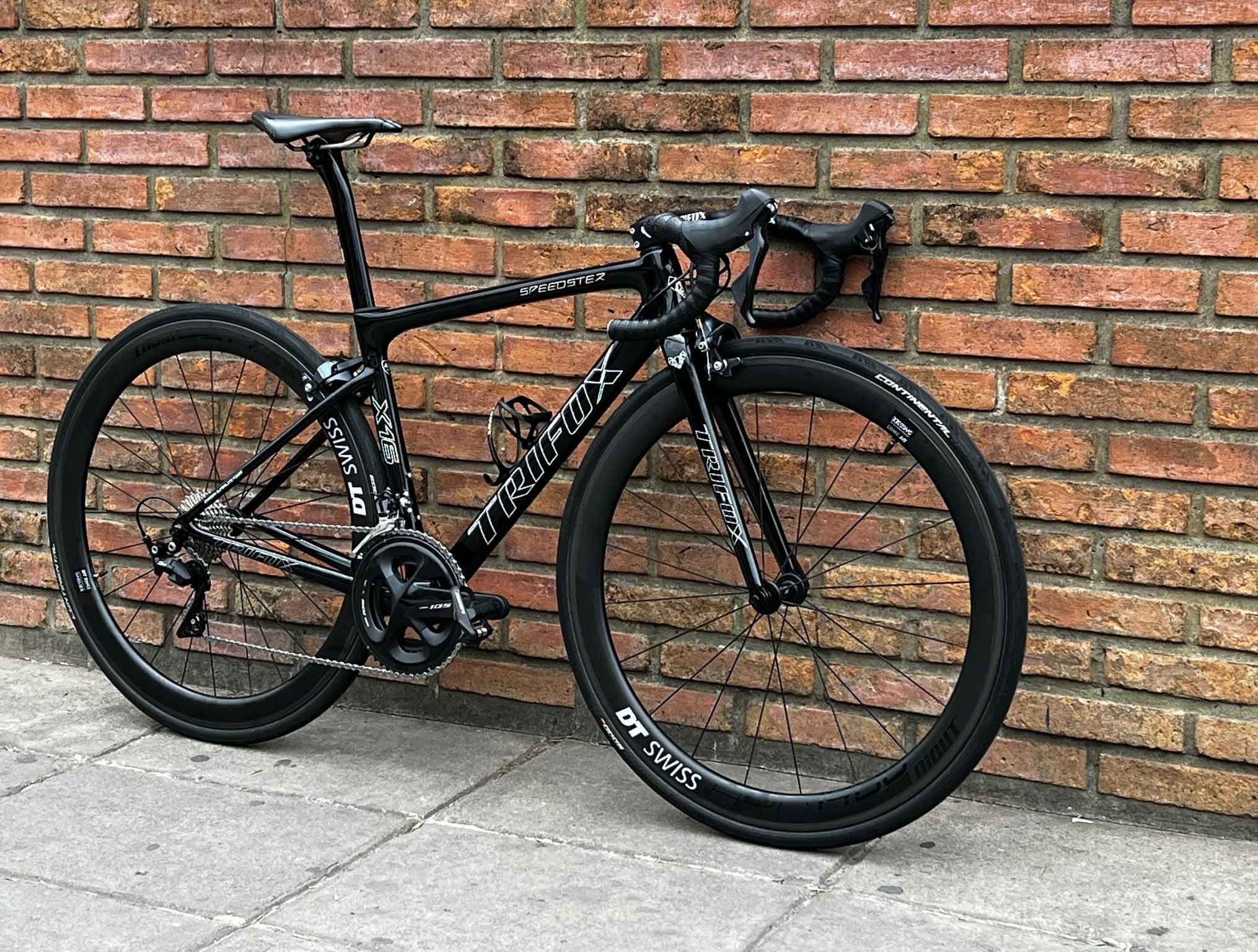
If you are looking to buy a new road bike, then the frame is one of the most important components to consider. The frame is the backbone of any bike, and it is responsible for determining the bike's quality, durability, and weight. There are several different types of road bike frames to choose from, each with its own unique characteristics and features. In this article, we will take a closer look at road bikes frame and tell you everything you need to know to make an informed decision. Carbon Fiber Frames Carbon fiber frames are the most popular and most expensive type of road bike frames on the market. Carbon fiber is extremely light and strong, making these frames highly durable and incredibly fast. They are also very comfortable to ride since carbon fiber absorbs road vibrations very well. However, they are also the most expensive option, making them less accessible for bike enthusiasts on a tight budget. Aluminum Frames Aluminum frames are recognized for their excellent stiffness-to-weight ratio. They are light, responsive, and easy to maneuver. As compared to carbon fiber frames, aluminum frames are less expensive and more durable; however, you may experience more road vibrations since the aluminum is harder and vibrates less. Steel Frames Steel frames have been around since the invention of cycling. They are very durable and long-lasting, making them an excellent choice for endurance riders. Steel frames are also comfortable since the material absorbs road vibrations well. However, they can be heavy, which can make uphill climbs more challenging. Titanium Frames Titanium frames are known for their durability and strength. They are also highly resistant to corrosion and don’t tarnish over time, making them an excellent choice for outdoor riding. The frames are also lightweight, so they are easy to maneuver on the road. However, they are costly, making them less accessible to those who are on a tight budget. Custom Frames If you want a road bike frame that is tailored specifically to your needs, you may want to consider a custom frame. Custom frames are designed to meet the specific requirements of the rider in terms of comfort, fit, and ride quality. You can choose the material, geometry, and shape that suit you best, but custom frames are also costly and take time to make. Conclusion: In summary, choosing the right road bike frame is critical to your overall cycling experience. Each type of frame has its unique strengths and weaknesses, and the best choice for you depends on your personal preferences, budget, and riding style. Remember, the frame is the backbone of your bike, and it’s worth investing in a good one. Shop smart, do your research, and enjoy the ride!
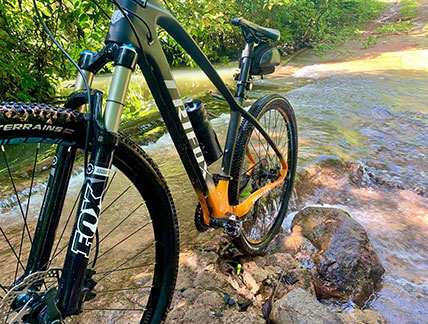
Mountain biking has grown in popularity over the years, attracting both casual riders and professional cyclists. One key element that plays a significant role in the overall performance and enjoyment of mountain biking is the type of bike frame used. In this article, we will explore the hardtail mountain bike frame, its unique features.Understanding Hardtail Mountain Bike FramesA hardtail mountain bike frame is a type of bicycle frame designed specifically for off-road cycling. The term "hardtail" refers to the fact that these bikes have a rigid rear triangle, meaning there is no rear suspension. Instead, they rely on a suspension fork at the front to absorb impacts and provide a smoother ride on rough terrain.Hardtail mountain bike frames offer several advantages over their full-suspension counterparts:Weight: Hardtail frames are generally lighter than full-suspension frames due to the absence of rear suspension components. This makes them easier to maneuver and accelerate, especially when climbing steep hills.Efficiency: With no rear suspension, hardtail frames provide more efficient power transfer from the rider's pedaling efforts to the rear wheel. This results in better acceleration and speed on various terrains.Maintenance: Hardtails require less maintenance compared to full-suspension bikes, as there are fewer moving parts and components that can wear out or need adjustment.Cost: Hardtail frames are usually more affordable than full-suspension frames, making them a popular choice for beginners and budget-conscious riders.The Best Hardtail Mountain Bike FrameThere are numerous hardtail mountain bike frames available on the market, catering to different preferences and budgets. Some of the best options include:Trifox Carbon MTB Frame MFM200: This high-quality carbon fiber frame combines lightweight construction with exceptional durability and stiffness. The Trifox MFM200 is designed for 29-inch wheels, providing excellent rollover capabilities and smooth handling on rough terrain. Its internal cable routing ensures a clean and sleek appearance while protecting cables from dirt and debris.Why Choose the Trifox Carbon MTB Frame MFM200?The Trifox MFM200 stands out as one of the best hardtail mountain bike frames due to its advanced design, high-quality materials, and excellent performance. Carbon fiber construction ensures a lightweight yet sturdy frame that can withstand the rigors of off-road cycling. Additionally, its geometry is optimized for efficient power transfer and precise handling, ensuring a responsive and enjoyable ride.In conclusion, hardtail mountain bike frames offer a great balance of efficiency, low maintenance, and affordability, making them an excellent choice for both experienced and beginner riders. Among the best options available, the Trifox Carbon MTB Frame MFM200 stands out as a top choice for those seeking a high-performance hardtail frame that delivers exceptional value for money.
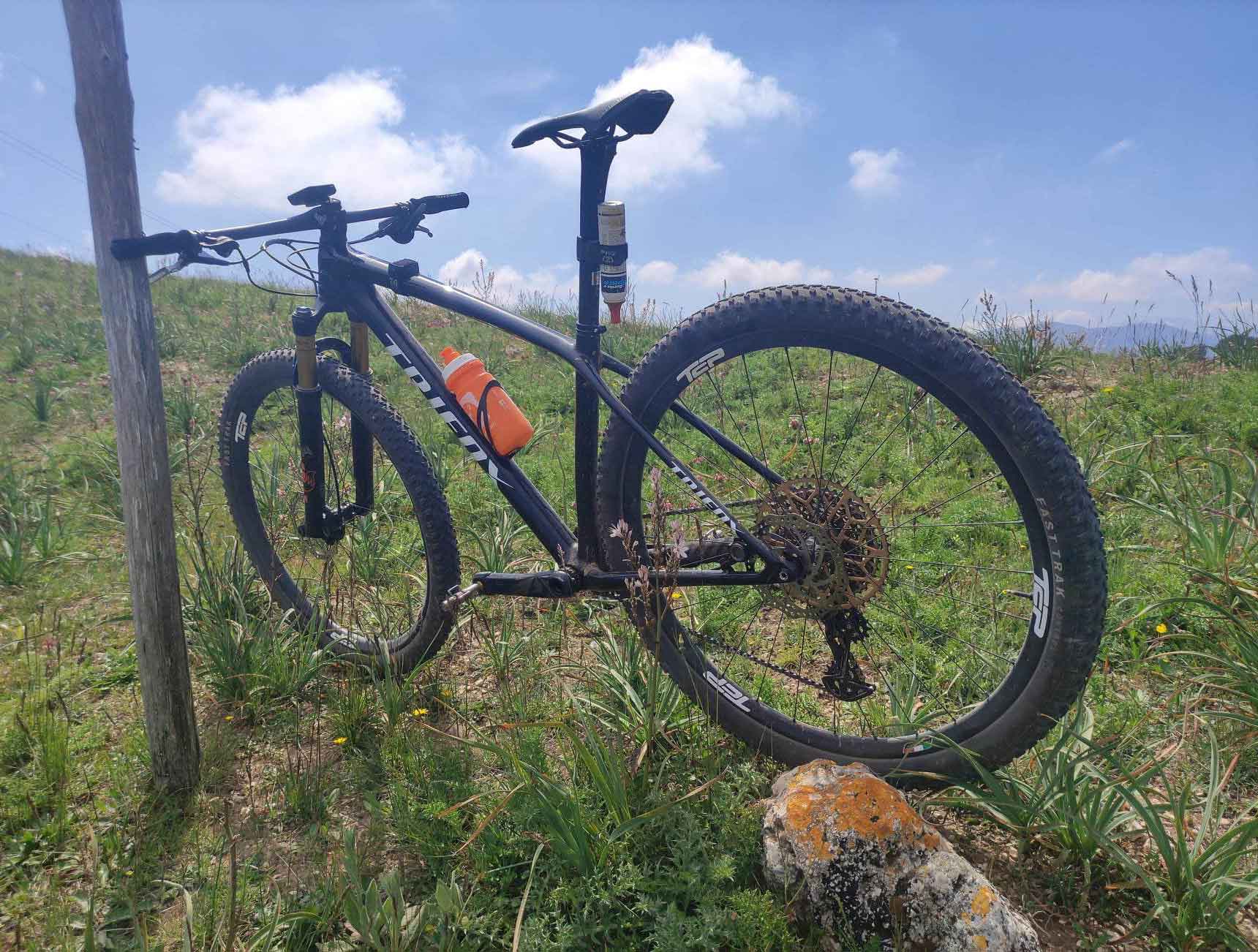
Choosing between a fat bike and a hardtail MTB can be tricky, especially if you're an experienced enthusiast. However, if you're a beginner, you might not know which one to get, as both types come with their own unique features and benefits. Should you get the Framed Minnesota Fat Bike, or the Trifox Ultra Light 29er Carbon Hardtail MTB SDY20? 1. Framed Minnesota Fat Bike This bike comes with a lightweight aluminum frame, which makes it easy to ride and maneuver on any terrain. It's also equipped with a 1x10 drivetrain, which provides a wide range of gears that allows you to tackle any slope. Additionally, the bike has 4-inch-wide tires, which gives you superb traction and stability in snow, sand, and mud. The only downside to this bike is its weight, which can make it harder to climb steep hills or go at top speeds. 2. Trifox Ultra Light 29er Carbon Hardtail MTB SDY20 If you want a hardtail MTB that's ultra-light and offers exceptional performance, the Trifox Ultra Light 29er Carbon Hardtail MTB SDY20 is the bike for you. This bike is made from full carbon fiber, which makes it extremely lightweight and durable. It's fitted with a 1x12 drivetrain, which provides a broader range of gears that's suitable for climbing and descending. The bike has 29-inch wheels that roll smoothly on rough terrain, and its hydraulic disc brakes offer unparalleled stopping power. The only drawback to this bike is that it's not ideal for snowy or sandy terrain, as it doesn't have fat tires. 3. Which One Is Better? Choosing between the Framed Minnesota Fat Bike and the Trifox Ultra Light 29er Carbon Hardtail MTB SDY20 depends on your riding style and needs. If you're into fat biking and want a bike that can handle any terrain, the Framed Minnesota Fat Bike is the one for you. But if you want a hardtail MTB that's lightweight and powerful, the Trifox Ultra Light 29er Carbon Hardtail MTB SDY20 is the better choice. If you're confused about which one to go for, you can always opt for a hybrid bike that combines the features of both types. 4. Tips for Choosing the Right Bike When choosing a bike, it's essential to consider your riding needs and features that fit your style. Here are some things you should keep in mind before making a purchase: - Determine the terrain you'll be riding on. - Pick the right frame material for your needs. - Choose a suitable drivetrain that offers a range of gears. - Look for a bike that has adequate suspension for your terrain. - Consider the weight of the bike, how it affects your riding, and your strength. Conclusion: Whether you're looking for a fat bike, hardtail MTB, or a hybrid that mixes the features of both, there's a bike out there that suits your style and needs. Remember to consider your riding style, the terrain you'll be riding on, and your preferences when making a purchase. With that, happy riding!

















